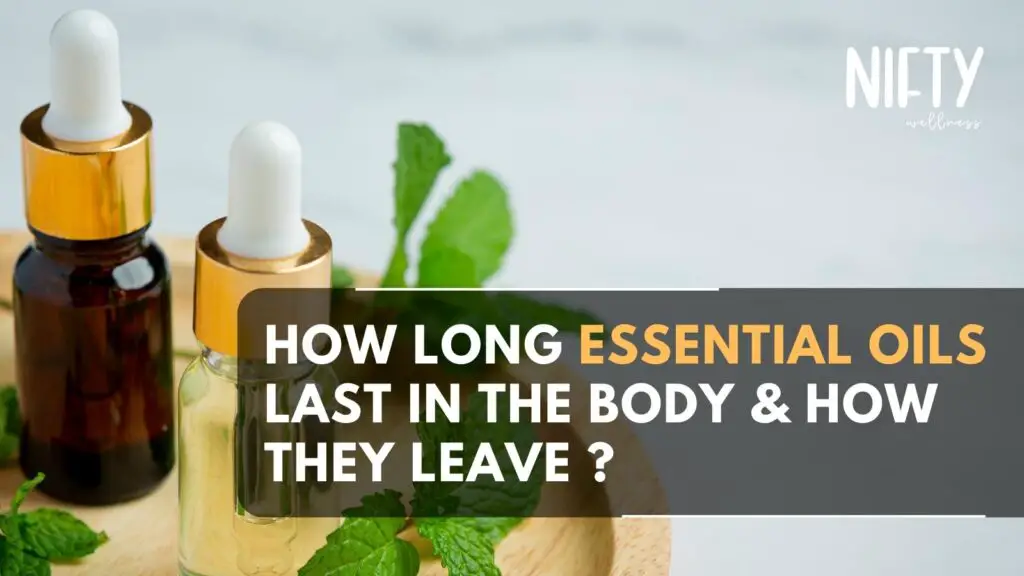Essential oils are plant extracts, small vials of oil that capture the essence of a plant. Through obtaining the plant’s essence, essential oils harness that plant’s scent, flavor, and therapeutic benefits.
But once they are on you, how long do essential oils last in the body, how do they get to the bloodstream, and how do they “leave”?
Let’s find out.
First, What Are Essential Oils?
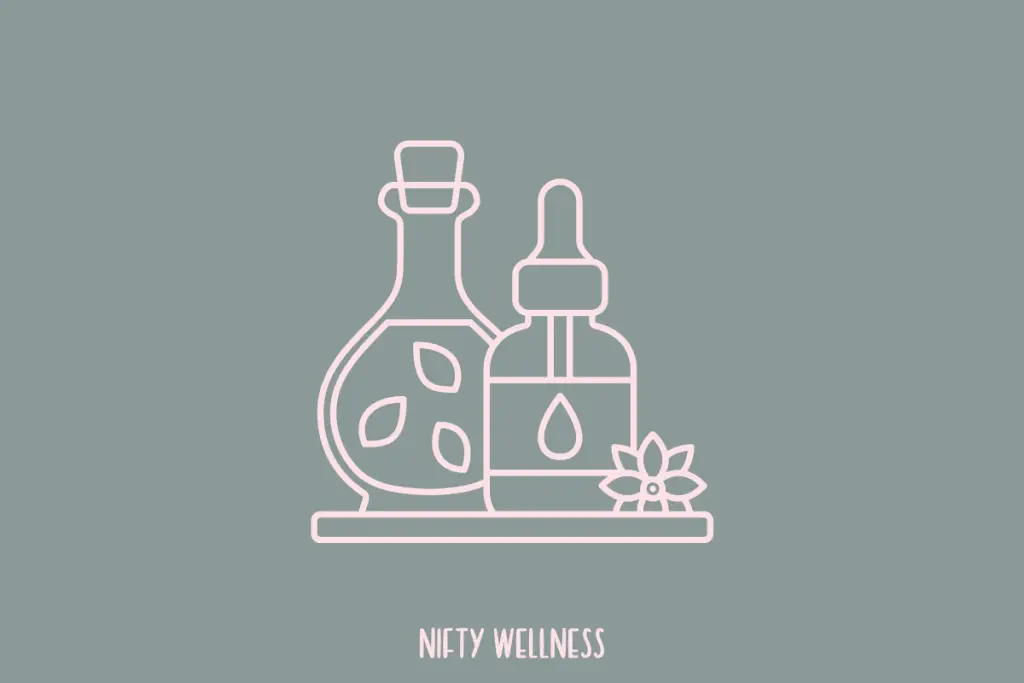
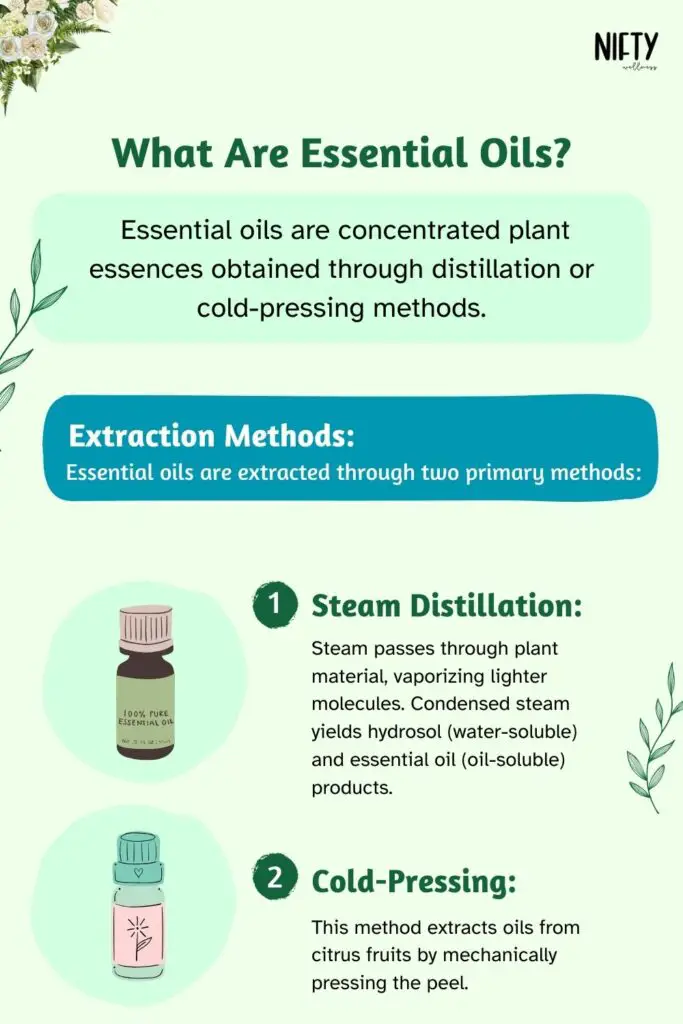
Essential oils are plant essences obtained through distillation (which uses steam or water to extract the plant’s essence) or cold-pressing.
In steam distillation, steam is directed through the plant material and vaporizes the plant’s lighter molecules.
That steam is then condensed and cooled, producing two different products: the hydrosol, which contains the water-soluble molecules, and the essential oil or the oil-soluble molecules (which is usually 100–200 molecules per essential oil).
The most common use of essential oils is aromatherapy, in which the scents of these natural compounds are used to promote feelings of rest, focus, love, joy, and peace.
Though aromatherapy is a fantastic way to utilize essential oils, these plant extracts can be integrated into daily life in a multitude of ways, each with its own benefits.
Though they are called oils, essential oils do not feel oily to the touch. However, essential oils are concentrated plant extracts, and some caution should be used when handling them.
Certain oils are sensitizing, phototoxic, harmful to pets, etc. If you have any sensitivities or concerns, please research your specific oil(s) to find out more details and helpful guidelines to assure safety.
Or check out our full guide about essential oils and pets.
Best Ways To Absorb Essential Oils
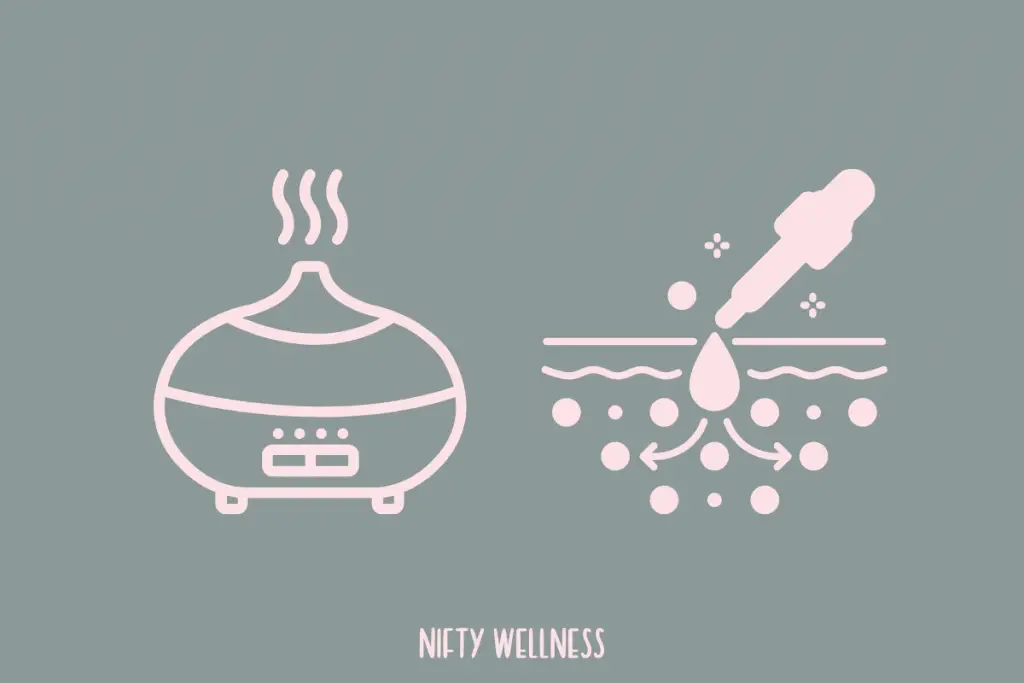
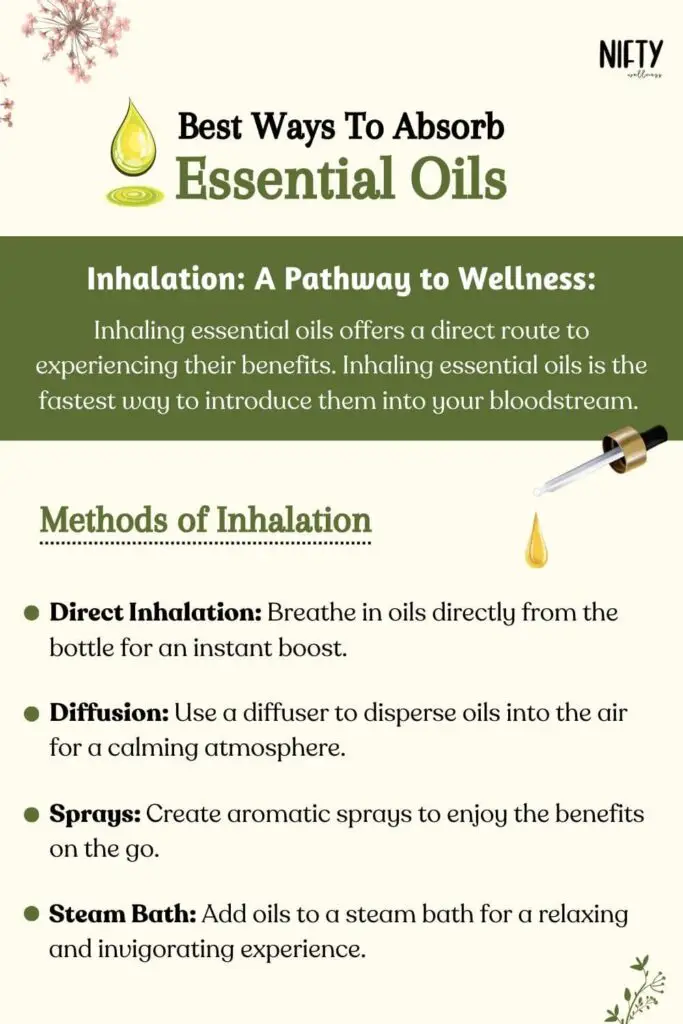
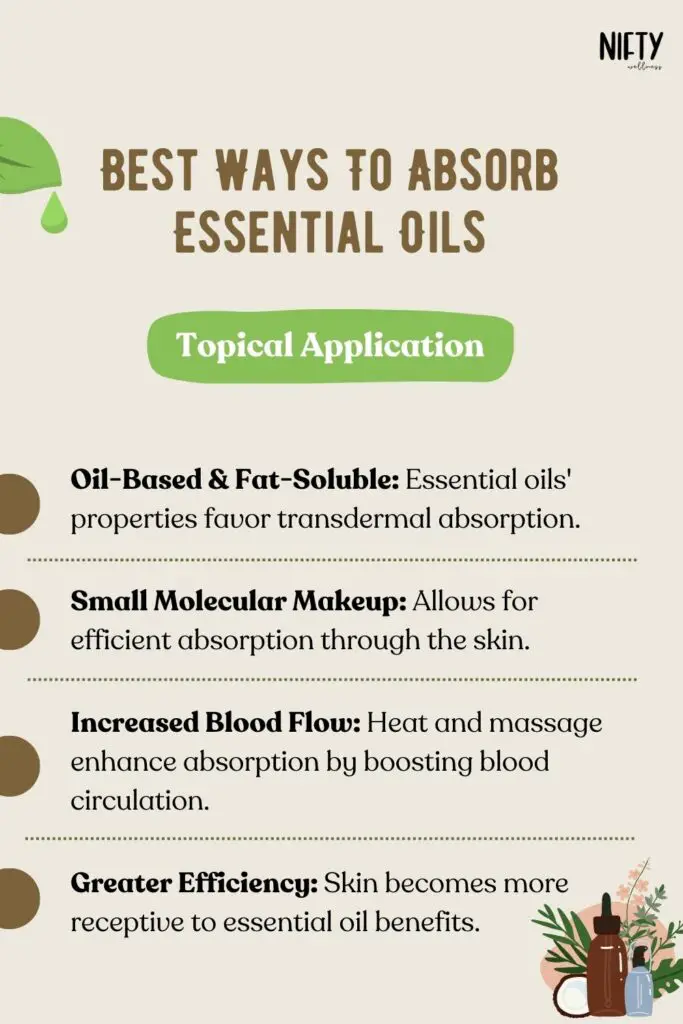
Inhalation
Inhaling essential oils is the quickest and most effective way to get these precious molecules into your bloodstream. Once the molecules enter through the nose and pass into the lungs, they then travel to other parts of the body.
Inhalation, meaning breathing in oils directly or through a diffuser, spray, or steam bath, stimulates the olfactory and limbic systems. The olfactory system is the part of the brain connected to smell, including the nose.
Our limbic system, also referred to as the “emotional brain,” is related to those parts of the brain that control heart rate, breathing, blood pressure, memory, stress levels, and hormone balance.
Topical Application
According to a 2020 study, that the primary route of essential oils is through the skin.
Because essential oils are oil-based, fat-soluble, and have a relatively small molecular makeup, they have a greater tendency for transdermal absorption or absorption into the skin upon application.
Absorption into the skin is increased by heat and massage due to an increase in blood flow.
The olfactory and limbic systems are also stimulated through topical application as the aroma will inevitably be inhaled. Topical application includes using essential oils in massage oils, bathwater, and skincare products.
Side-note: It is generally advised to never use essential oils directly on the skin because they are heavily concentrated.
To apply essential oils topically, dilute a few drops in with a carrier oil such as jojoba or grapeseed oil and then massage into the skin.
Welcome to the world of post-shave indulgence by reading our latest blog “The Ultimate Guide To Oils For After Shaving: Achieve a Smooth and Nourished Skin“, where we uncover the secret to velvety smooth skin.
How Long Do Essential Oils Stay In The Bloodstream?
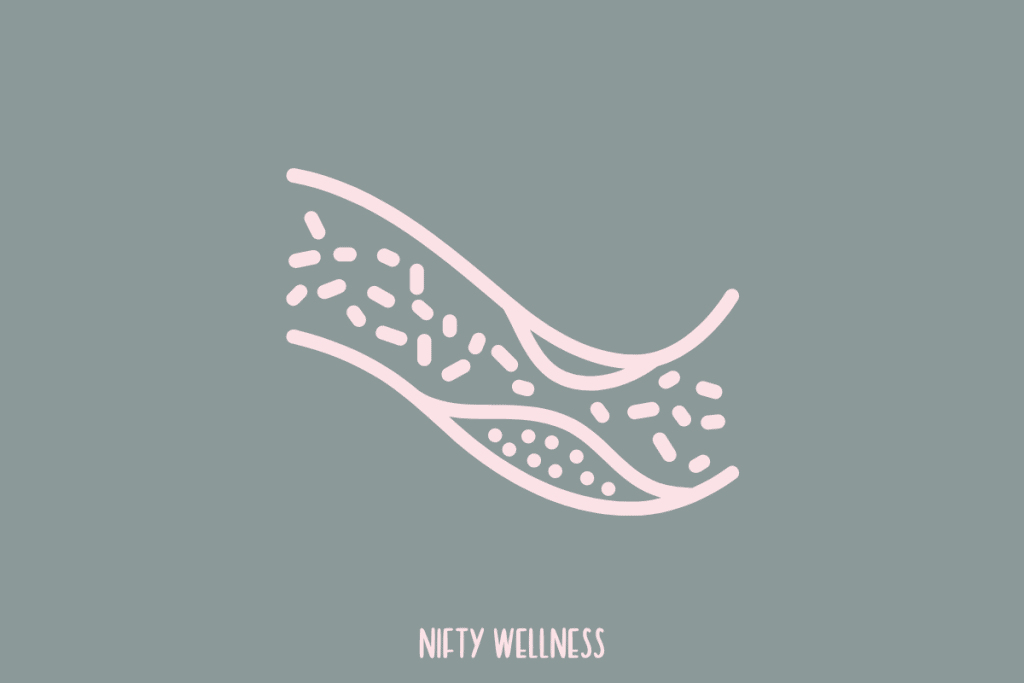
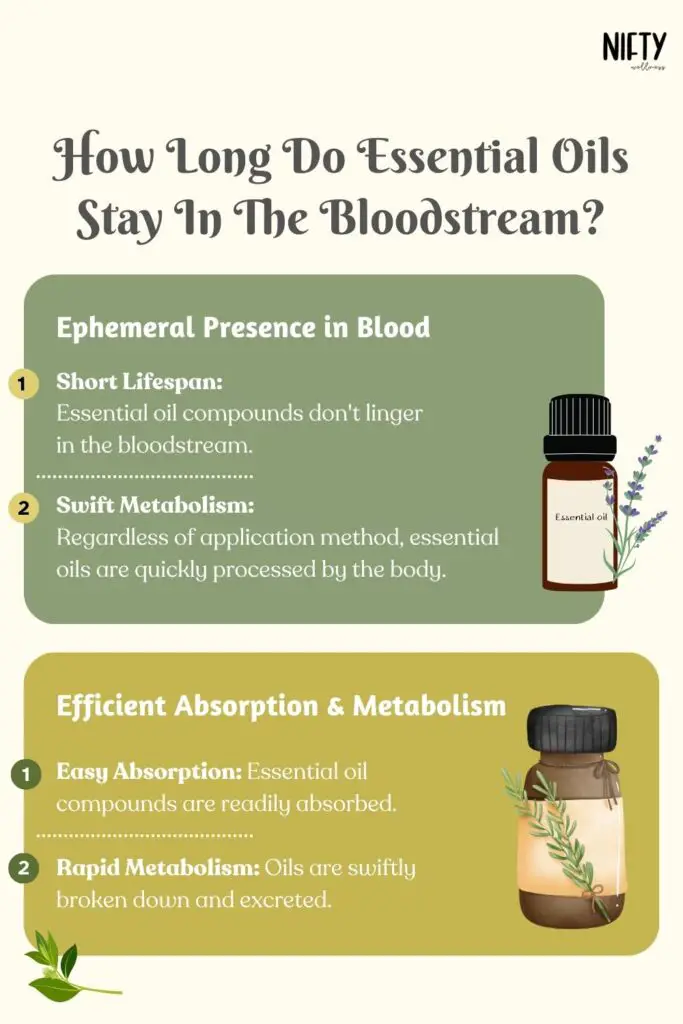
One study from 1992 examining the absorption of lavender essential oil from a massage oil found that five minutes after application, the main constituents of lavender essential oil—linalool and linalyl acetate—could be detected in the blood.
After twenty minutes, the essential oil concentration was at its peak; most of the lavender was excreted within ninety minutes. This research suggests that essential oils do not stay in the bloodstream for long and are quickly metabolized by the body.
Other research likewise suggests that essential oil compounds are easily absorbed and that the oils, regardless of the method of application, are quickly metabolized.
How Do Essential Oils Leave The Body?
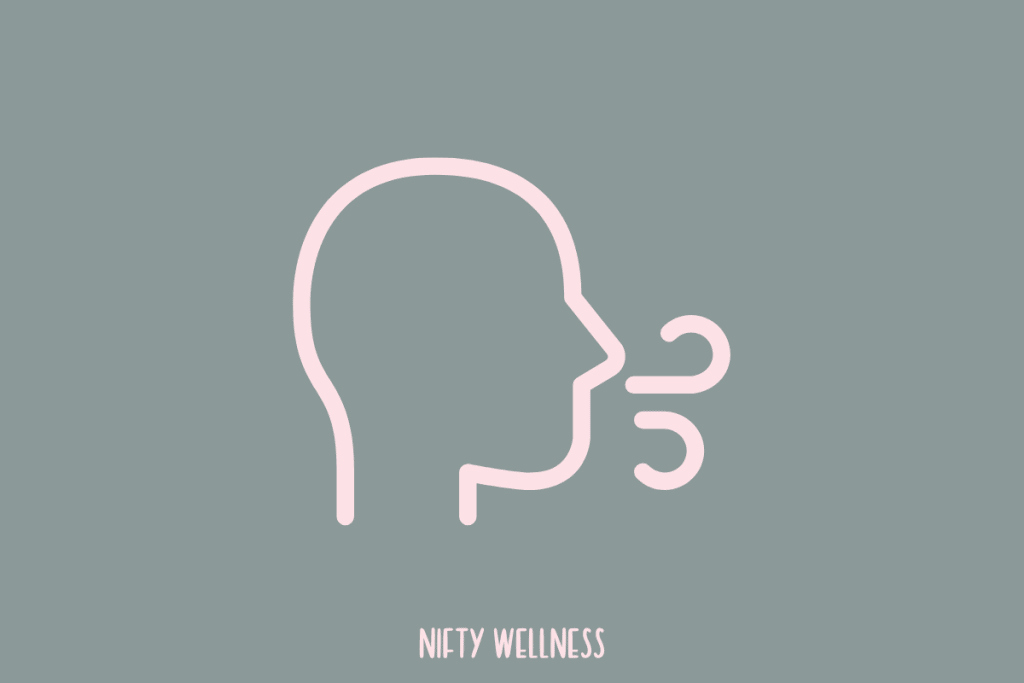
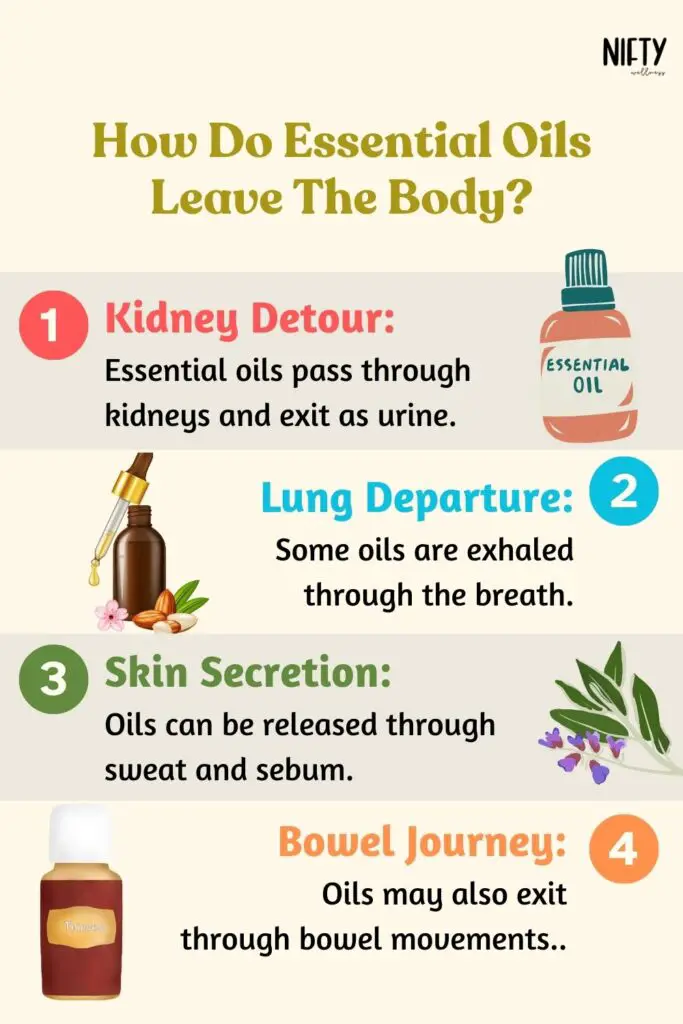
In 1940 a researcher named Straehli studying essential oil’s absorption into the skin found that once the oils make it into the bloodstream, they diffuse throughout the body and are then breathed out.
Since then, more modern research suggests that essential oils eventually pass through the kidneys and are excreted as urine, exhaled by the lungs, secreted through the skin, or discharged through bowel movements.
How Long Do Essential Oils Last On The Skin?
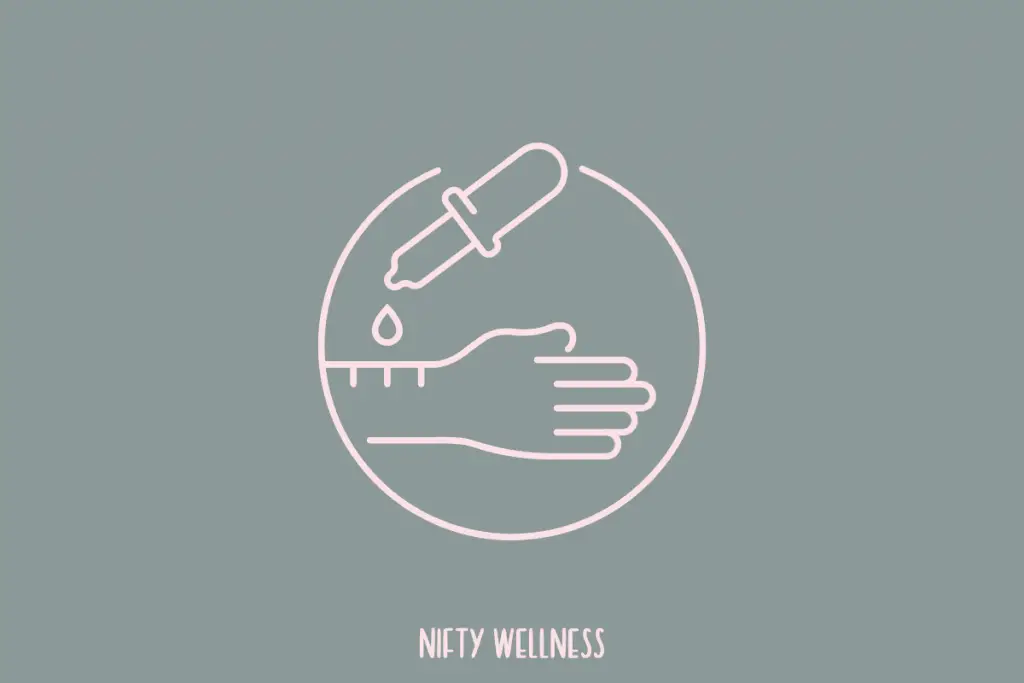
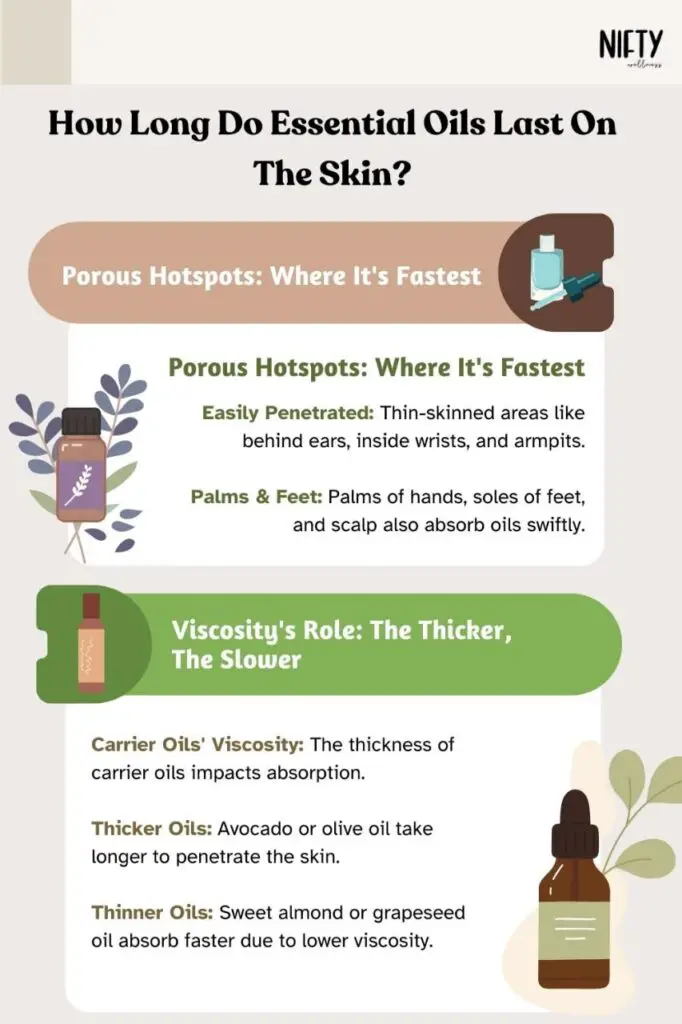
Essential oils absorb relatively quickly into the skin before they make it into the bloodstream. One factor determining the absorption of essential oils is the permeability of the skin.
Thin skin, such as behind the ears and inside the wrists, is very porous, and therefore oils absorb more quickly when applied to these places. The palms of the hands and feet, armpits, and scalp also absorb these molecules rapidly.
The viscosity of carrier oils is another factor that impacts how long essential oils stay on the skin. Thicker oils such as avocado or olive oil will not penetrate as quickly as thinner oils such as sweet almond or grapeseed oil.
What Is the Fastest Way To Get Essential Oils Into Your Bloodstream?
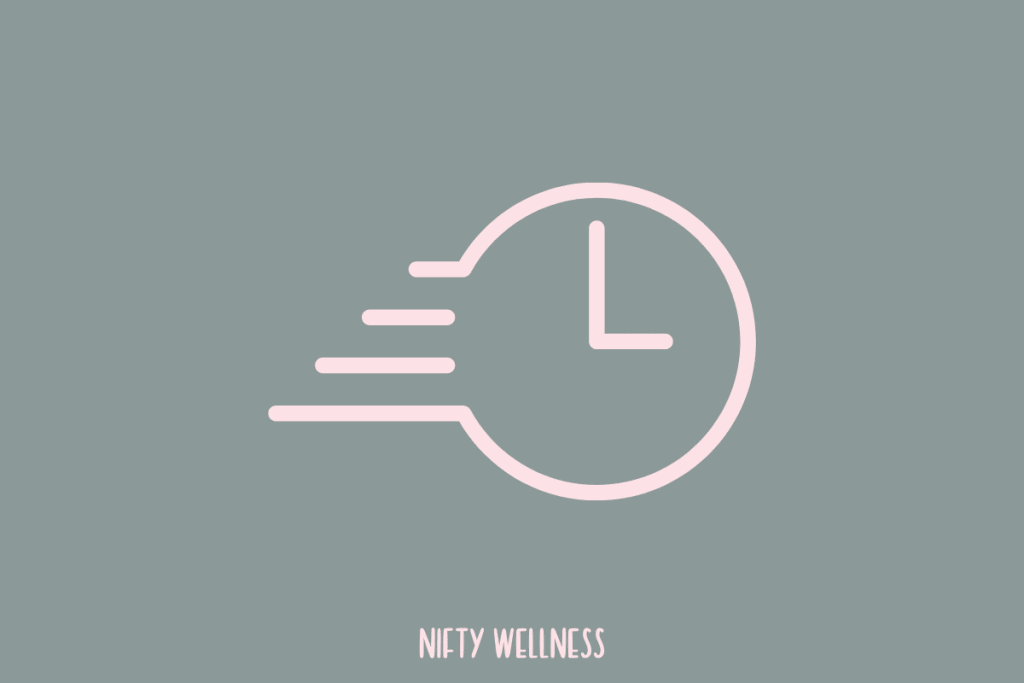
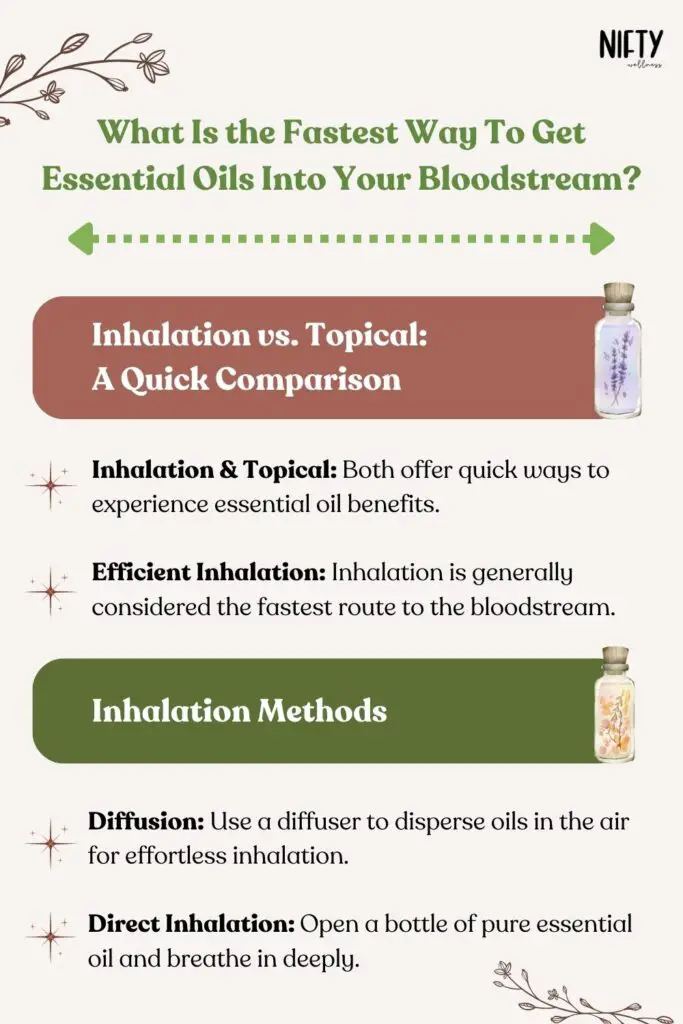
While both inhalation and topical application are quick, when it comes to effective ways to get essential oils into the bloodstream, inhalation is generally believed to be the fastest route.
Inhalation can be done by diffusing essential oils into the air or by simply opening a bottle of pure essential oil and breathing it in.
Frequently Asked Questions
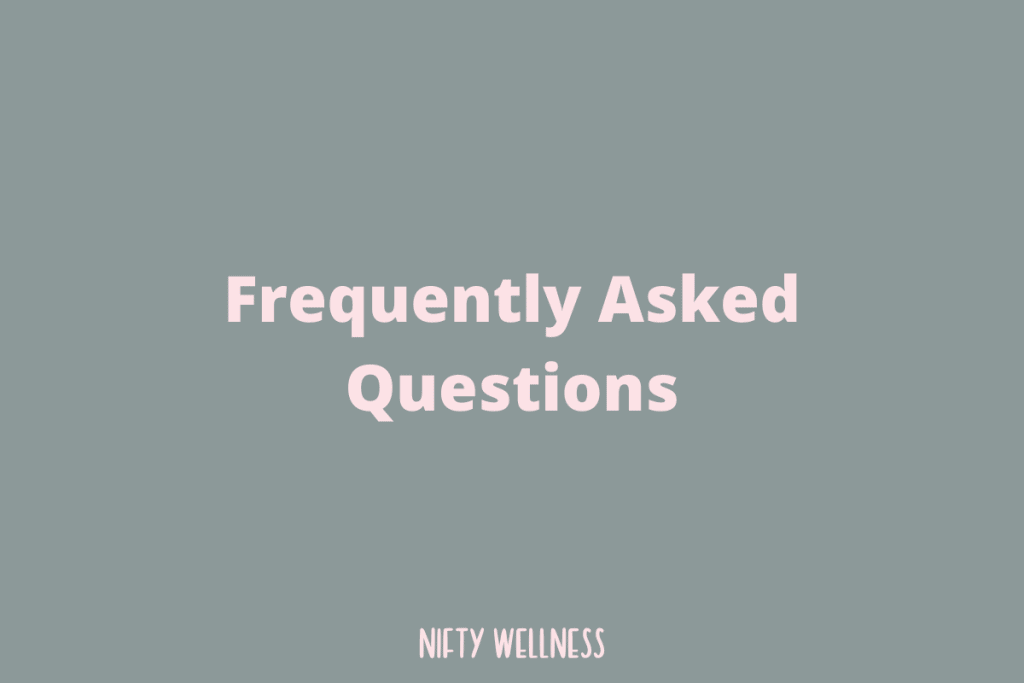
What Is The Most Absorbent Part Of The Body?
For dermal absorption or skin-based absorption, it is believed that areas on the body that are plentiful in sweat glands, sebaceous glands, and hair follicles are great places for absorption.
Thinner areas of the skin (such as the wrist) are also notable areas for essential oil absorption.
Do Essential Oils Expire?
Once a bottle of essential oil is opened and comes into contact with light, oxygen, and heat, its composition slowly begins to change, losing its effectiveness over time.
All essential oils have a shelf life, but it differs between oils. More citrus-based oils such as lemon, lime, orange, and yuzu have a shelf life of one to two years.
Oils such as bergamot, chamomile, cypress, frankincense, lemongrass, neroli, and tea tree have a shelf life of two to three years.
Cardamom, cinnamon, citronella, lavender, myrrh, and thyme oils have a standard shelf life of three to four years.
Oils such as blue tansy, cedarwood, clove, geranium, peppermint, rose, and ylang ylang have a four to five year shelf life. In contrast, oils such as patchouli, sandalwood, and vetiver can last six to eight years.
What Is Essential Oil Diffusion?
Essential oil diffusion refers to a method or device that disperses the essential oils’ aromatic molecules into the air.
It is an easy and popular way to use essential oils that allows you to create and circulate your own essential blends.
Diffusing certain essential oils has shown to promote relaxation or concentration and sanitize the air, killing any lingering unwanted germs and bacteria.
How Long Do Essential Oils Stay In The Air?
Each essential oil is unique and will thus stay in the air for a different amount of time. A general rule of thumb is that the essential oil’s notes dictate how long they will remain in the air.
Lighter top notes such as peppermint, lavender, and eucalyptus will stay in the air for about an hour or two. Middle notes like rosemary, geranium, and chamomile will evaporate within two to four hours.
Heavier base notes like myrrh and cedarwood will last longer, anywhere from five hours to a couple of days.
The temperature and air quality of a room can also influence how long these aromatic molecules will stay in the air. Warmer spaces or those with rapid air movement can cause the essential oils to last for less time than normal.
